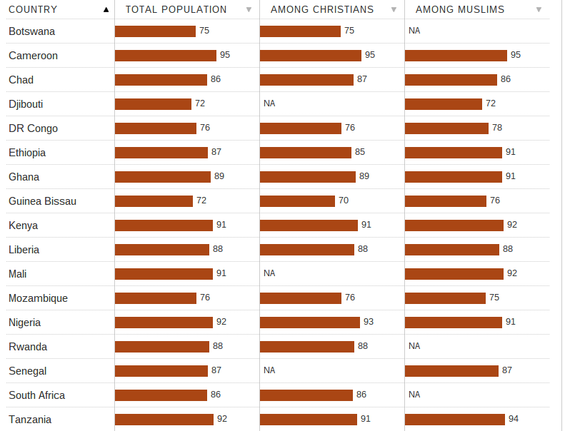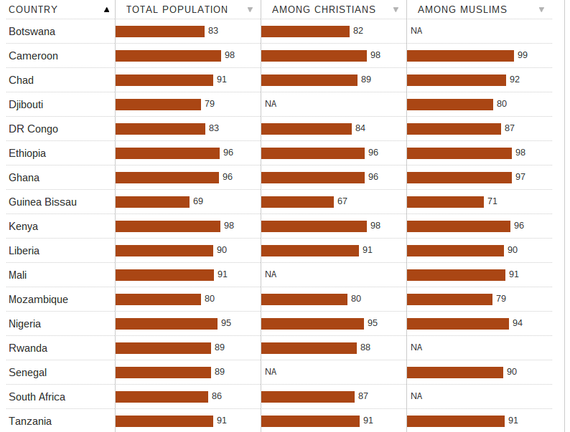
Bill Maher's polemics about Islam have made a lot of headlines lately. While sitting as a guest on Maher's HBO show Real Time, film star Ben Affleck suggested that Maher was being racist. Maher's emphatic obsession with Islam as the target of his more broadly atheist polemics may qualify as bigotry, but it was perhaps Reza Aslan, a scholar of religions, who more carefully captured the source of Maher's problem. Dr. Aslan simply observed, "When it comes to the topic of religion, [Maher is] not very sophisticated."
Maher and fellow "new atheist" guest Sam Harris both tend to fail to understand the difference between literalist religion and religion as it is practiced. Looking at any religious text from the Abrahamic faiths, it isn't difficult to find revolting and seemingly "backwards" ideas within their pages. Unsurprisingly, ethical codes that date back to anywhere from 1,400 years ago to over 3,000 years ago are more than a little out of date. What Maher, Harris and many others like them fail to realize is that religion as it is practiced is a product of a wide array of factors, the official texts being only one of them.
Their confusion is understandable. Technically, religions allege that their holy texts are timeless sources of moral guidance, lessons, and principles. In reality they have proven to be highly contextual and relative "guidelines" on how to engage in faith-compliant behavior. The Hadith does indeed propose that the penalty for apostasy be death, as Maher noted. The Bible says more or less the same but leaves it to God to handle the dirty work on Judgment Day. According to the book of Revelations in the New Testament of the Bible, the only unforgivable sin is the rejection of Christ. According to the text around which Christian theology is built, apostasy is a crime that ranks above gang rape and mass murder in inviting God's wrath. The Torah permits slavery and the stoning of adulterers. Unsurprisingly, most Jews today don't actually find those practices acceptable. Indeed, it would be fair to suggest that claiming that such verses are a sound basis for judging and engaging with Jews verges on anti-Semitism.
Maher likes to claim that statistics prove he's right. One of the most famous sets of statistics on the matter that Maher discusses comes from the Pew Forum. If you take Muslims alone, their views may, at times, appear shockingly conservative to Westerners. This is, of course unsurprising, given that most of the world's Muslims do not live in the most liberal and secular parts of the world. The views of many non-Western populations are "inadequately" liberal to most Westerners. Interestingly, the Pew Forum did discover one thing in its most recent survey of the world's Muslims that is worth paying attention to:
American Muslims are somewhat less likely to believe in evolution than are Muslims in other parts of the world (45% vs. global median of 53%). Indeed, when it comes to evolution, U.S. Muslims are closer to U.S. Christians (46% of whom say they believe in evolution) than they are to fellow Muslims elsewhere in the world.
It appears that living in the United States, with its high level of skepticism regarding evolution amongst religious Christians, actually resulted in American Muslims being less likely to believe in evolution than their fellow Muslims abroad. What this suggests is that where you live has more influence over what you believe than does what your religious text tells you to believe. This should hardly surprise a sophisticated nonbeliever who understands that humans are largely a product of their context, but new atheists do seem to fail to grasp this.
If one looks at the Pew Forum's comparative study of tolerance amongst Muslims and Christians in sub-Saharan Africa, it becomes more apparent how much more important social context is than formal religious affiliations in structuring people's views on morality. The survey found that where someone lives is a far more effective predictor of one's views on the acceptability of abortion than is the religion they belong to. In Cameroon 95 percent of the population believes abortion is morally wrong. Taken separately, 95 percent of Christians and 95 percent of Muslims in Cameroon hold that view. In Mozambique 76 percent of people see abortion as morally wrong. Taken separately, 76 percent of Christians and 75 percent of Muslims see abortion as morally wrong.
On homosexuality, the same trend emerges. In Cameroon 98 percent of the overall population, including 98 percent of Christians and 99 percent of Muslims, see homosexuality as immoral. In Mozambique it's 80 percent of the overall population, including 80 percent of Christians and 79 percent of Muslims.
The point here is not that there isn't a problem with religious freedom in many Muslim-majority countries but that their being Muslim is not the primary reason for that problem, and that people of any faith are more shaped by the norms of their cultural context, interpreting their religious texts to comport with those norms rather than the other way around.
The simple reality is that religion isn't the most relevant variable in forming people's sense of morality or even their behavior. If you look at the polls in context, you discover that where you live often has far stronger predictive power than the faith you subscribe to in terms of your views on morality. Your social context is more influential than a 1,400-, 2,000- or 3,000-plus-year-old book.
CORRECTION: The proposal that death be the penalty for apostasy by Muslims lies not in the Quran, as this post originally stated, but in the Hadith. The post has been updated accordingly.

